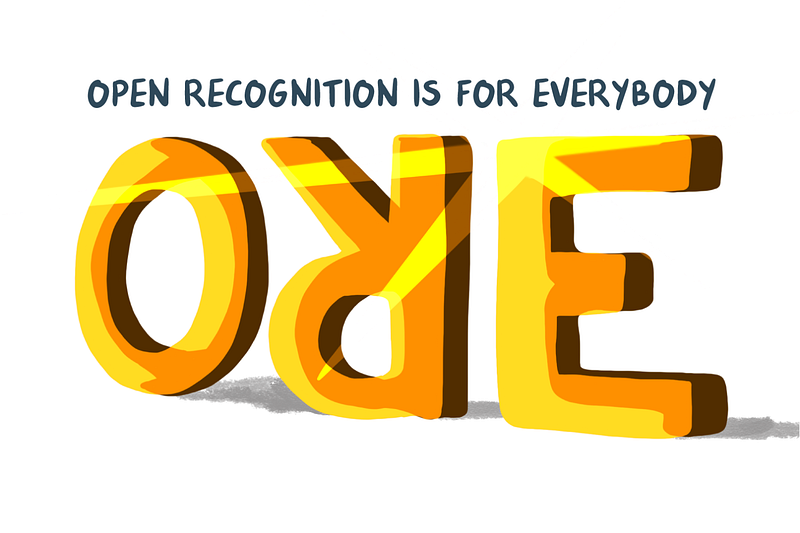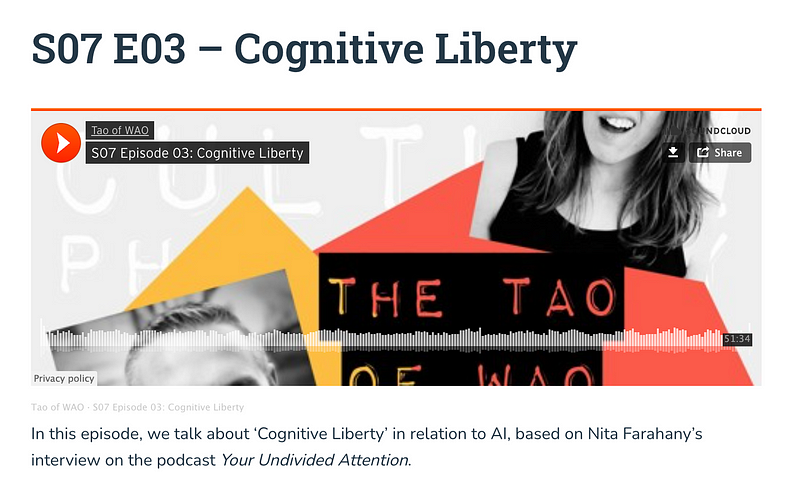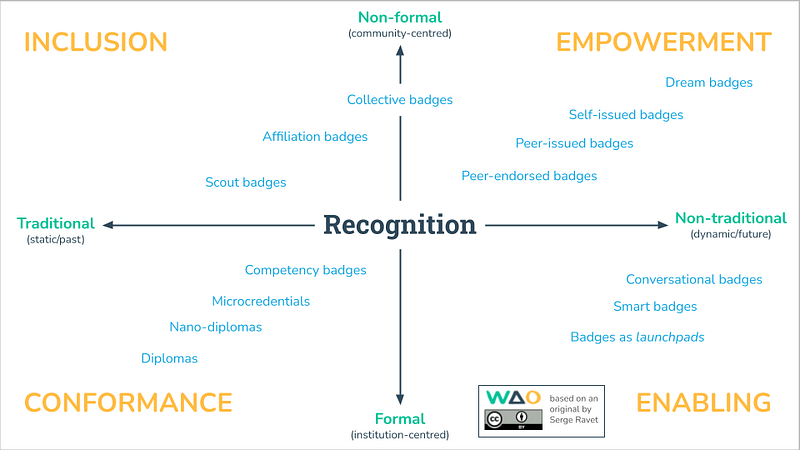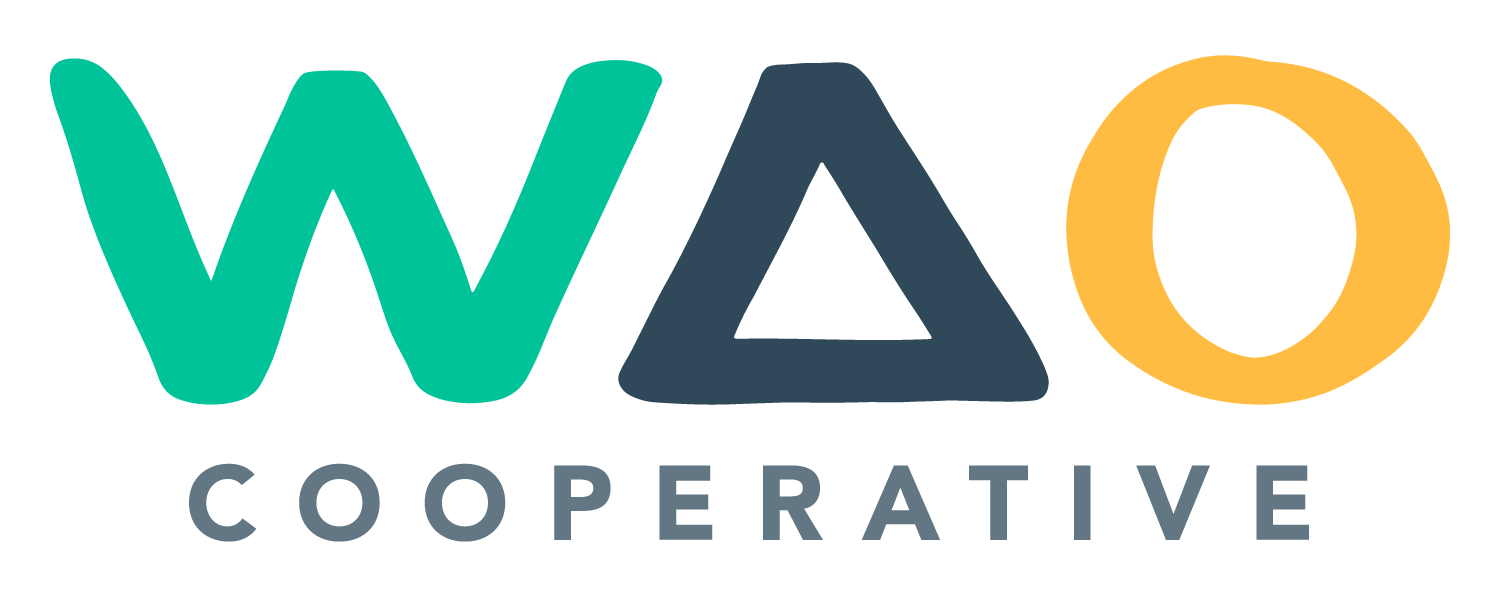#3: The One with Cognitive Liberty
In our last newsletter, we shared our second post about exploring community learning pathways with Greenpeace, a new course on Open…

In our last newsletter, we shared our second post about exploring community learning pathways with Greenpeace, a new course on Open Recognition, and the second episode on our podcast series on AI.
This time around, we’ve got a post from Anne Hilliger giving advice on how to rebrand a community, one from Doug Belshaw about five Open Badges platforms we’d recommend for various purposes, and a podcast episode featuring Doug and Laura Hilliger where they talk about the concept of ‘Cognitive Liberty’ in relation to AI.
Let’s dive in!

How to rebrand a community
We Are Open Co-op has collaborated with Participate over the past couple of years to build a community around the concept of Open Recognition. This was initially called ‘Keep Badges Weird’ and later renamed to ‘Open Recognition is for Everybody’ (ORE). This post outlines steps for successful rebranding, such as linking the future to the past, developing a community timeline, testing the new brand, transitioning slowly, and continuously gathering feedback to ensure that the community is inclusive and engaged throughout the changes.

Tao of WAO podcast
In the third episode of Season 7 of our podcast episode, we talk about ‘Cognitive Liberty’ in relation to AI, based on Nita Farahany’s interview on the podcast Your Undivided Attention.
Get it wherever you get your podcasts, or stream via SoundCloud below.

5 platforms for issuing Open Badges
One of our most popular posts of all time was a list of badging platforms. In this updated post, we create a short, updated list of five badging platforms we know and recommend for different types of purposes. We emphasise that the choice of badge platform should align with the specific types of recognition — such as inclusion, empowerment, conformance, and enabling — that an organisation aims to achieve.
📡 Signals
Links from around the web about things we think are (or could be) important relating to our work on sensemaking and digital transformation:
- The role of endorsement in Open Badges and Open Recognition (Doug Belshaw) — this post by one of our members explores the evolving importance of endorsements in the Open Badges ecosystem, especially with the new version 3.0 that integrates with Verifiable Credentials. It argues that these changes democratise the credentialing process, making endorsements a key element in building networks of trust and enabling Open Recognition.
- To Make Quality Decisions, You Need to Know Where You Want to Go (Inc.) — an article discussing the concept of the ‘Future Self’, emphasising that quality decision-making is best achieved by reverse-engineering actions from a desired outcome. It argues that being connected to your Future Self allows you to live better in the present, focusing your attention and actions towards what truly matters, thereby changing your identity and results in alignment with your envisioned future.
- Digital passports are here to speed up travel, and Finland is first to fly (New Atlas) — Finnish travellers can now use Digital Travel Credentials (DTCs) instead of physical passports when flying to Manchester, London, or Edinburgh via Finnair, in a world-first pilot programme aimed at simplifying border checks. The European Union aims for 80% of air travellers to use DTCs by 2030, and the technology is expected to speed up airport processing by over 30%.
- Artificial Intelligence and Education: A Reading List (JSTOR) — a reading list delving into the impact of AI on education, covering topics like AI applications in teaching, the need for transparency and mitigation of AI risks, and the importance of AI augmentation over automation. It also highlights the role of educators in shaping AI policies and emphasises ethical considerations for both educators and students in an AI-driven educational landscape.
- Worlds in Waiting (Ribbonfarm) — an article by Venkatesh Rao exploring the concept of “Keep the Lights On” (KTLO). This involves maintaining activities at a minimal functional level, representing potential worlds from the adjacent possible. They discuss how their interests, such as the blogosphere and the cryptoeconomy, are kept in KTLO mode as proxies for entire possible worlds they wish to preserve, highlighting the importance of these activities alongside the actual world.
👋 That’s it for this week! Don’t forget to share with your colleagues, etc.

Discussion